Pears are a sweet fruit that people have enjoyed for centuries. They’re bell-shaped and can be eaten raw, canned, or even juiced.
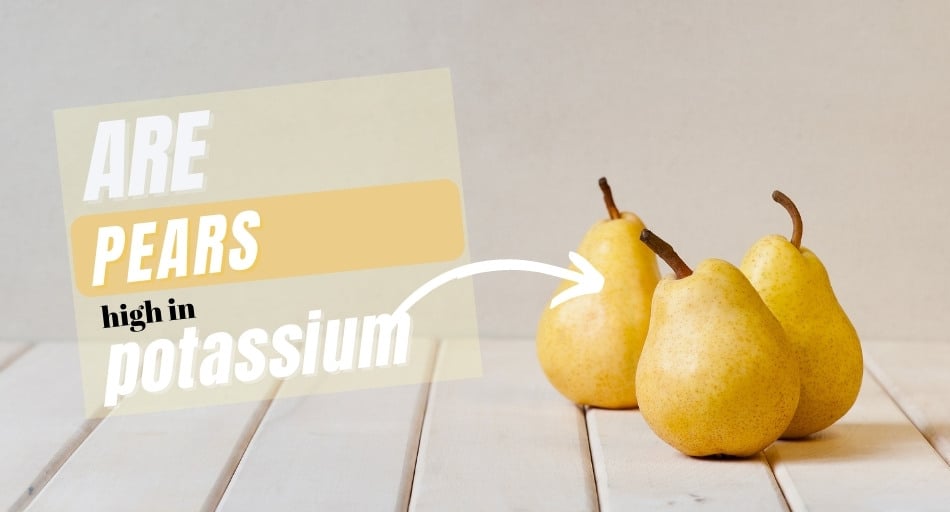
Pears are also incredibly nutritious, rich in various vitamins and minerals like potassium. If you have kidney issues, though, you have to follow a low-potassium diet.
So, are pears a good fruit for people on a diet low in this mineral? Are pears high in potassium?
Table of Contents
Are pears high in potassium?
Pears contain a decent amount of potassium, so whether you should eat them on a low-potassium diet depends on how strict your diet is. You can also consume smaller pears to get less potassium.
Pears are still incredibly nutritious, high in fiber and various other nutrients. So, adding them to any diet is incredibly beneficial for your health, especially if you’re looking for a quick but efficient way to load up on many important vitamins and minerals.
How much potassium is in pears?
One medium-sized pear provides you with 212 mg of potassium. A small pear, on the other hand, contains 176 mg of potassium.
So, while it’s still a rather high-potassium fruit, calorie per calorie, you can still eat smaller pears or eat them sliced up to control your serving sizes.
That way, you’ll take in less potassium but will still be able to enjoy this delicious fruit.
Some people also choose to peel their pears, which does decrease the amount of potassium, but it also reduces how many other nutrients you’re taking in from this fruit.
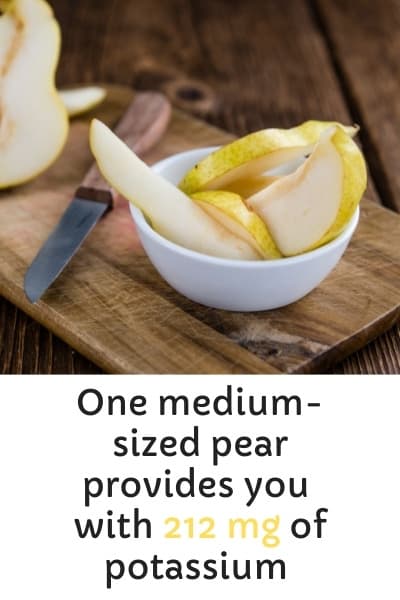
What are the health benefits of pears?
Almost all calories in pears come from carbohydrates, and that includes sugar and fiber. In fact, one medium pear contains 5.5 g of fiber, which corresponds to around 22% of your daily need for this nutrient.
The fiber in pears helps soak up excess stomach acid, reducing the symptoms of acid reflux and GERD.
The type of fiber found in pears also feeds the ‘good’ gut bacteria that keep your digestive system healthy and reduce inflammation.
A diet rich in foods high in fiber can also help you feel full after eating, aiding in weight gain.
Pears are a great source of powerful antioxidants that help flush out harmful free radicals from your body.
This prevents oxidative stress and damage to your cells and tissues, reducing your risk of several chronic conditions like diabetes and even cancer.
The same antioxidants also help prevent inflammation in your body, which is another cause of various health issues.
Most of the antioxidants in pears are found in their skin, so to get the most out of them, make sure to eat the whole fruit.
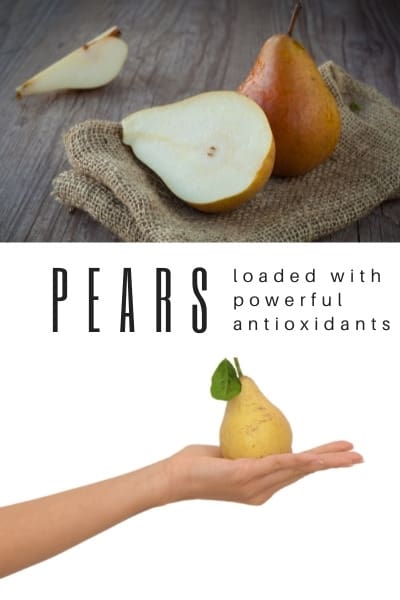
One pear also provides you with a lot of beneficial plant compounds. They offer several impressive health benefits, including improved heart health and stronger blood vessels.
Because of that, eating pears can help you lower your risk of many cardiovascular diseases, such as heart attacks, strokes, and high blood pressure.
Another plant compound that pears are high in is lutein, which helps keep your vision sharp, especially as you age. It also prevents age-related macular degeneration.
Pears are also a great source of vitamin K. This fat-soluble micronutrient is important for blood clotting, bone metabolism, and blood calcium levels regulation.
Your body requires this vitamin to produce a protein responsible for blood clotting, which can’t be mad in your body naturally.
Since it’s a fat-soluble micronutrient, it’s important to eat foods containing it along with some sources of healthy fats, like nuts, avocados, or fatty fish.
This improves absorption and ensures that you’re getting the most out of your food.
Can you take in too much potassium from pears?
A single medium pear contains more than 200 mg of potassium, which makes it a high-potassium fruit.
Because of that, those following a strict low-potassium diet should limit their consumption of this fruit as much as possible.
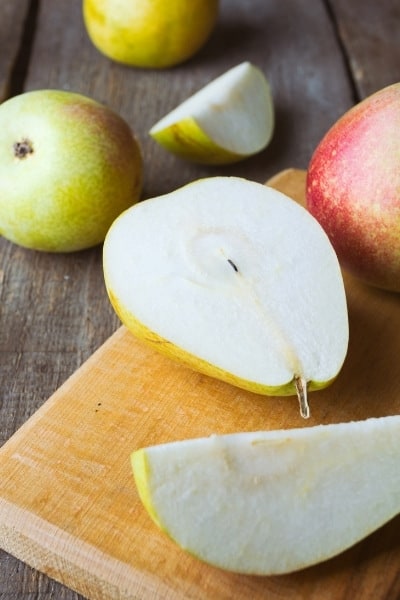
You can also eat smaller pears, which decreases how much potassium you’re taking in.
Another way is to eat peeled pears, as most micronutrients are found right underneath or in the skin. Doing so can help you significantly reduce the potassium content.
Are canned pears high in potassium?
Canned pears are either packed with heavy or light syrup. A cup of canned peaches with heavy syrup contains 173 mg of potassium, and the same serving of canned peaches packed with light syrup provides you with 166 mg of potassium.
Canned peaches are often served with ice cream or added to desserts, like pies and cakes.
While they do contain some important nutrients, they’re very high in sugar, so you should be careful with consuming too much of them.
Is pear nectar high in potassium?
One cup of pear nectar contains around 32.5 mg of potassium. This makes pear nectar a safe fruit juice for a low-potassium diet.
It also contains a good dose of fiber, which improves digestion and helps metabolize the sugar you’re taking in from this juice.
A single glass of pear nectar contains good amounts of copper, vitamin K, vitamin C, and iron, helping you load up on these nutrients.
While making your own pear juice using a juicer is much healthier and nutritious, store-bought pear nectar is still very nutritious.
Some brands even have added vitamin C, which helps boost your immune system.
Are dried pears high in potassium?
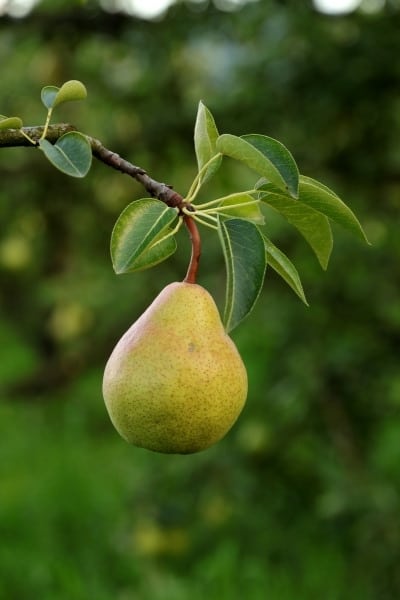
Like most dried fruits, a half-cup serving of dried pears contains 329 mg of potassium. This makes them a food that should be limited or completely avoided on a low-potassium, kidney-friendly diet.
Dried pears are rather nutritious and provide a lot of fiber, which helps with digestion and may aid in reducing the symptoms of acid reflux and GERD.
But due to how much sugar, potassium, and calories they contain, it’s best to eat them in small amounts.
Conclusion
Pears are a relatively high-potassium fruit, which means you should be careful about consuming too many of them on a low-potassium diet.
For those who don’t have to reduce their potassium intake, pears are nutritious and healthy, making for a wonderful addition to any healthy, balanced diet.
Don't know which foods are high in potassium? Read our article, 15 Best Food Sources of Potassium. We also have a guide to this important mineral: Potassium 101: All You Need To Know About Potassium.
